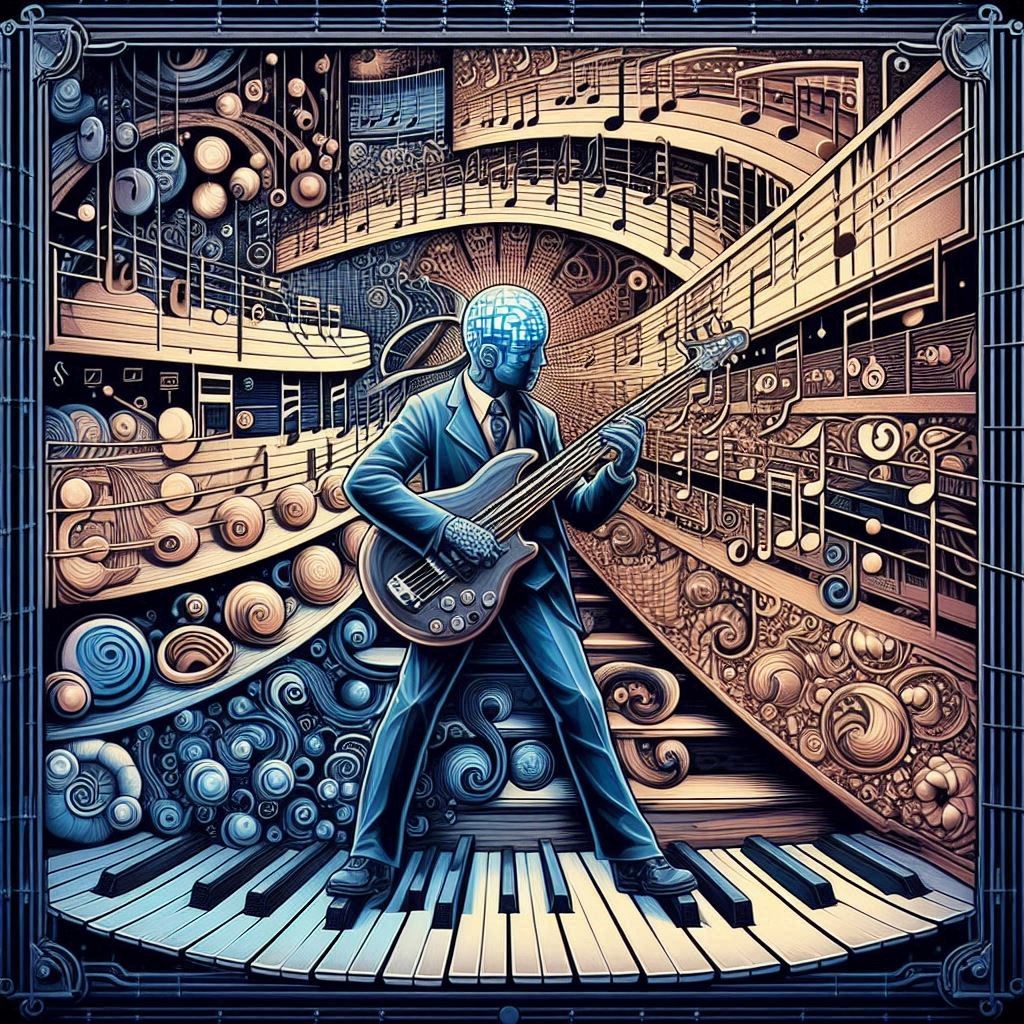I’d decided to concentrate on my other academic love, Science. I wanted to do a degree in Physiology and Biochemistry but my Physics A-Level was one grade lower than I needed, so I thought I’d get a job as a lab tech at a local hospital and resit the next year. This was when I discovered I had defective colour vision and, even if I got the Degree I wanted, I was unemployable in that sphere. Giving up music now looked like the worst decision I’d ever made, possibly ever would make.
A year later my best friend from School called on me an told me that a local Church, which he’d started attending with his girlfriend, were looking for someone who played the piano to support the organist. I refused, but threats were made and so on the Wednesday I turned up at the church for a rehearsal. Sitting at a piano for the 1st time in 5 years I played the only thing I could remember; a scale in C Major, both hands together. A bit shaky, but still there. Turns out this particular church, although CofE didn’t use the Hymns Ancient and Modern (where Modern means “written 200 years ago”) all that much, just at Easter and Christmas. They had their own book of devotional music collected by the worshippers over several years. If you were lucky some of them had the melody line scored, but many just gave a key and time signature. There weren’t really all that many, just a hundred or so and the rehearsal tended to focus on the songs to be sung that weekend. It wasn’t just me and the organist either. No choir, but anywhere between 3 and 5 guitarists, a cellist, flautist and even a drummer (who once played in The Shadows). The organist wasn’t an expert player and just tended to play the chords for the song. It was my job, as pianist, to provide some frills to those chords which meant, you’ve guessed already, playing arpeggios, scales and other frilly stuff based a little on the exercises in Bachs works. Bachs music can, IMO, be loosely categorised as Educational, Devotional and Earners, so two elements could be borrowed from for the role I was playing.
So after all this time, the stuff that I hated doing the most was pretty much what I wound up doing every rehearsal and twice on Sundays. The irony of this was not lost on me.
But something in me changed. As the months passed and became years and I grew to know the songs what I could play changed as well. You could add grace notes into the arpeggios, spice up the scales a bit perhaps by playing one hand a 3rd or 5th above the other, go contrapuntal, play off the organist, or play to support the guitarists if any turned up (they didn’t always). In other words just started having some fun playing. But everything was still based on those scales and arpeggios I’d hated.
Strange isn’t it? Being able to play the Moonlight Sonata counted for nothing, being able to improvise or riff off a scale or chord did, and it’s difficult to improvise on any instrument unless you’ve got a good grounding in the basics, and the only way to get those basics under your belt is hard work on the boring stuff. Only when your fingers can flow from one note to another within the song structure, and without you having to think what note comes next will you be able to improvise with ease,
I received a newsletter recently from an internationally known guitar teacher in which he says that when growing up he wanted to be able to improvise like Hendrix and B.B. King. He wanted to play from the heart. He didn’t realise that these guys had a firm grounding in technique and rhythm and had a lot of stock phrases under their belts.
I recall seeing a film of Eric Clapton around the time he was in Cream where he talks about having a load of stock phrases , little riffs, scales, broken chords, which he used when playing. Putting these together in different ways is what made his music sound fresh and exciting.
But none of that just happens. It all takes work. You need a solid foundation to be able to build successfully on it. When, as a guitarist, you are so comfortable with the B being only 3 semitones above the G where every other string has a 5 semitone gap that you don’t stumble over it, you don’t get caught out by it, it’s just natural to you.
Classical scales, Blues scales, Pentatonic scales, Jazz scales: learn them, play them, make them part of what you are and what you can become is limitless.

